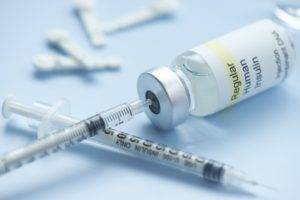
What is normal Blood Sugar?
Do you want to know? The most confusing thing I hear almost daily from most diabetics is what normal blood sugar levels are. Hence in the video, Dr Spages will clarify the confusion surrounding blood sugar levels.. What should your blood sugar level be and why is all the confusion?
Ask the question, well, what is normal, healthy blood sugar? Some people say it’s 60 to 120, and other people say it’s 70 to 110. And the numbers are all over the place. So, Dr Spages gives you some more insight, looking at blood sugar levels and also some really good advice on knowing how to actually judge and see how your blood sugar levels are doing. For the best diet to lose weight and best solutions for diabetes, consult the industry expert- Dr Spages.
Explanation of Blood Sugar Levels and Confusion Surrounding it
There is a lot of confusion surrounding blood sugar levels and what is considered normal, prediabetic, and diabetic. To gain a better understanding of this, the speaker shares their research using a trusted laboratory, Lab Core, which is widely used for thousands of patients. The lab’s research indicates that normal fasting blood glucose levels should be between 70 to 99, while prediabetes levels range from 100 to 125, and diabetes levels are over 126, all measured within a one A1C range for long-term blood sugar levels. The speaker then goes on to share more information from a different lab.
When you look at blood sugar levels with Quest Diagnostics, you may notice something confusing. Quest’s fasting blood glucose levels are listed as 65 to 99, which is quite different from the Lab Core’s range of 70 to 99. It’s important to note that fasting blood glucose levels refer to a period of about 8 hours since you last ate before the lab work. This disparity in results between different labs can be confusing, leaving you wondering why there is such a difference in the ranges provided.
Understanding Discrepancies in Blood Sugar Level Ranges Among Different Labs
As you review the different blood sugar level ranges from various labs, such as LabCorp and Quest Diagnostics, it’s important to note that these labs employ doctors and scientists who work to provide the most accurate results. However, you may notice discrepancies between the ranges provided.
One factor that may contribute to these discrepancies is the lab’s service area. LabCorp, for example, has regional areas such as Northeast and Southeast, and the range of blood sugar levels considered normal can vary from one area to another. Your location and the lab used by your healthcare provider can influence the range of blood sugar levels considered normal. For instance, in New Jersey, LabCorp uses the Northeast region, while in Florida, there’s a different lab with its own unique range. This explains why LabCorp’s range in one area may be 70 to 99 while Quest Diagnostics’ range in another area is 65 to 99.
It’s important to understand that just because a blood sugar level falls within a particular range, it doesn’t necessarily mean that it’s healthy or optimal for an individual. In functional medicine, the focus is on determining the ideal level of bodily function for each person, which may differ from the standard range provided by labs.
To illustrate this point, let’s consider an analogy using a car tire.
Like blood sugar levels, there is a specific amount of air pressure that’s optimal for a car tire. However, the recommended pressure may not be the ideal pressure for every car or every tire. Similarly, the standard range for blood sugar levels may not be the optimal range for everyone’s body. In functional medicine, it’s important to evaluate each individual’s unique circumstances to determine the ideal level of bodily function.
Functional Medicine Approach
In functional medicine, the goal is to identify and achieve the optimal level of bodily function for each individual. To use an analogy, just like a car tire needs the right amount of inflation to ride optimally, our bodies need to function within a certain range for optimal health.
When it comes to blood sugar levels, the standard ranges provided by labs may not be the optimal range for every individual. In functional medicine, the goal is to determine the ideal range for each person’s unique circumstances. For fasting glucose, the optimal range is between 85 and 99.
To emphasise the importance of blood sugar levels, let’s consider another analogy. The optimal blood sugar level for a human is like the temperature of a shower. Just as stepping into a shower that’s too hot or too cold can be uncomfortable or even dangerous, having blood sugar levels that are too high or too low can have negative consequences for our health.
Right. So if you go to a shower, the water temperature is about 85 to 99, it’s probably where most people wind up taking a shower. Now, a hot tub is usually around 104. So you can imagine, like if someone’s blood sugar levels are going in the one twenties or one fifties or two hundreds, it would be like jumping into a shower with the temperature being so high, you would burn your skin.
It would not be what you want to do. So you really want to work on keeping your fasting, especially blood sugar between 85 and 99. Now, obviously after you eat food, your blood sugar level may go up. Okay. So now let’s talk about the next little tip and trick that I do recommend that I think could help you or anybody else who has blood sugar issues.
Maintaining Blood Sugar Levels
If you want to understand the importance of blood sugar levels, just think of it as the temperature of the water in a shower or hot tub. Most people take showers at a temperature range of 85 to 99, while a hot tub is usually around 104. Similarly, if your blood sugar levels are in the range of 120s, 150s, or 200s, it could be like jumping into a shower with scorching hot water that burns your skin. Therefore, it is crucial to keep your fasting blood sugar levels between 85 and 99. However, after eating food, your blood sugar levels may increase. To manage blood sugar issues, there are some tips and tricks that could help.
For understanding the concept of blood sugar levels in a more detailed way , consult Dr Spages.






